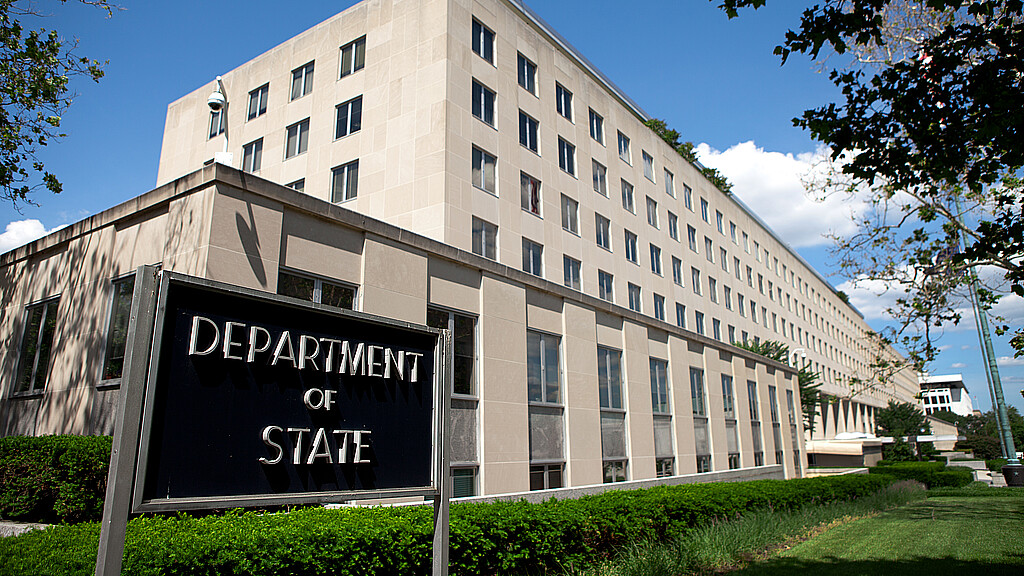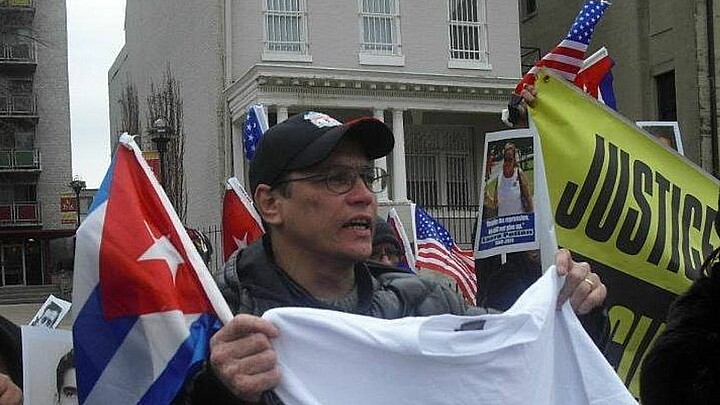Human Rights
U.S. State Dept. condemns Cuban military dictatorship for imposing long sentences on protestors
13 protestors were prosecuted and convicted for sedition and sabotage after protesting in 2022 against civil liberties repression and planned power cuts

April 30, 2024 9:00am
Updated: April 30, 2024 11:55am
The U.S. State Department openly condemned the Cuban military dictatorship for imposing long sentences on protestors as part of a wave of “repression” against its citizens.
The State Department’s statement is in response to the regime after a Soviet style law court imposed jail terms up to 15 years for charges of sedition and sabotage just for protesting state planned electricity power cuts.
Some protestors also chanted “freedom, freedom!” as well. In September, ADN reported that thousands of Cubans have continuously fled the island amid its crackdowns and failures.
State Dept. Assistant Secretary for Western Hemisphere Affairs Brian A. Nichols lashed out at the Cuban regime, calling the prison sentences “outrageous.”
“The Cuban government's continued repression of Cubans striving to fulfill their basic rights and needs is unconscionable,” wrote Nichols on the X social media platform.
While the protests were non-violent and did not result in any significant disruption of day to day operations, public assembly is illegal in Cuba and many citizens avoid demonstrations out of fear of retaliatory repression in the form of arrest, imprisonment and prosecution.
However, the continuing state of repression and crackdowns against freedom of expression coupled with the failing Cuban economy has increased tension among the general population. Concerns about freedom have grown since the Cuban regime issued decrees tightening restrictions on freedom of expression in public and also on the internet.
Since the island wide sweeping July 11, 2021 protests, more Cubans have been willing to defy the regime’s oppressive anti-assembly laws and made their voices heard. Those protests went down in history as some of the largest public gatherings in the nation’s history since Fidel Castro’s July 26 Movement swept the island in the 1959 Revolution to overthrow Gen. Fulgencio Batista.
More than a thousand Cubans were arrested as part of those protests and many have continued to languish in jails and prisons while being subjected to torture despite human rights groups denouncing the regime’s extrajudicial treatment of those arrested.
Since then, sporadic demonstrations have continued to haunt the regime as Cubans have ensured their voice is heard. Last month in March, large protests arose in Santiago amid electricity blackouts.
Some media outlets have parroted the regime’s narrative that the protests are aimed solely at economic failures while blaming the U.S. for sanctions, but ADN has reported that many of the demonstrators have also expressed open discontent with the regime’s authoritarian policies.
Amid the rising frustration over civil liberties repression, the regime’s orchestrated efforts to restrict the food supply from the Cuban people and engage in controlled power shortages has taken tensions to a boiling point.
In what appears to be a point of desperation, the Cuban military dictatorship has resorted to asking the United Nations World Food Programme for assistance—a first in the regime’s 65 year history.
The Cubans currently facing harsh 10 to 15 year prison sentences were arrested in August 2022 after the regime cut power in the small town of Nuevitas in the rural province of Camagúey.
For decades, the Cuban military dictatorship has blamed the failure of its communist system on U.S. sanctions and its state-controlled press has accused Washington of trying to “make the most of Cuba's complex economic situation” to destabilize Havana.
While the regime has not yet directly responded to Nichols’ criticism of its imposition of lengthy sentences against the demonstrators, Havana’s official state press outlet, Granma, has continuously accused Washington of trying to instigate “a social explosion” on the upcoming anniversary of the historic July 11, 2021 protests.
In March, ADN also reported that various Cuban entertainers united to speak out against the regime’s continuing repression.











